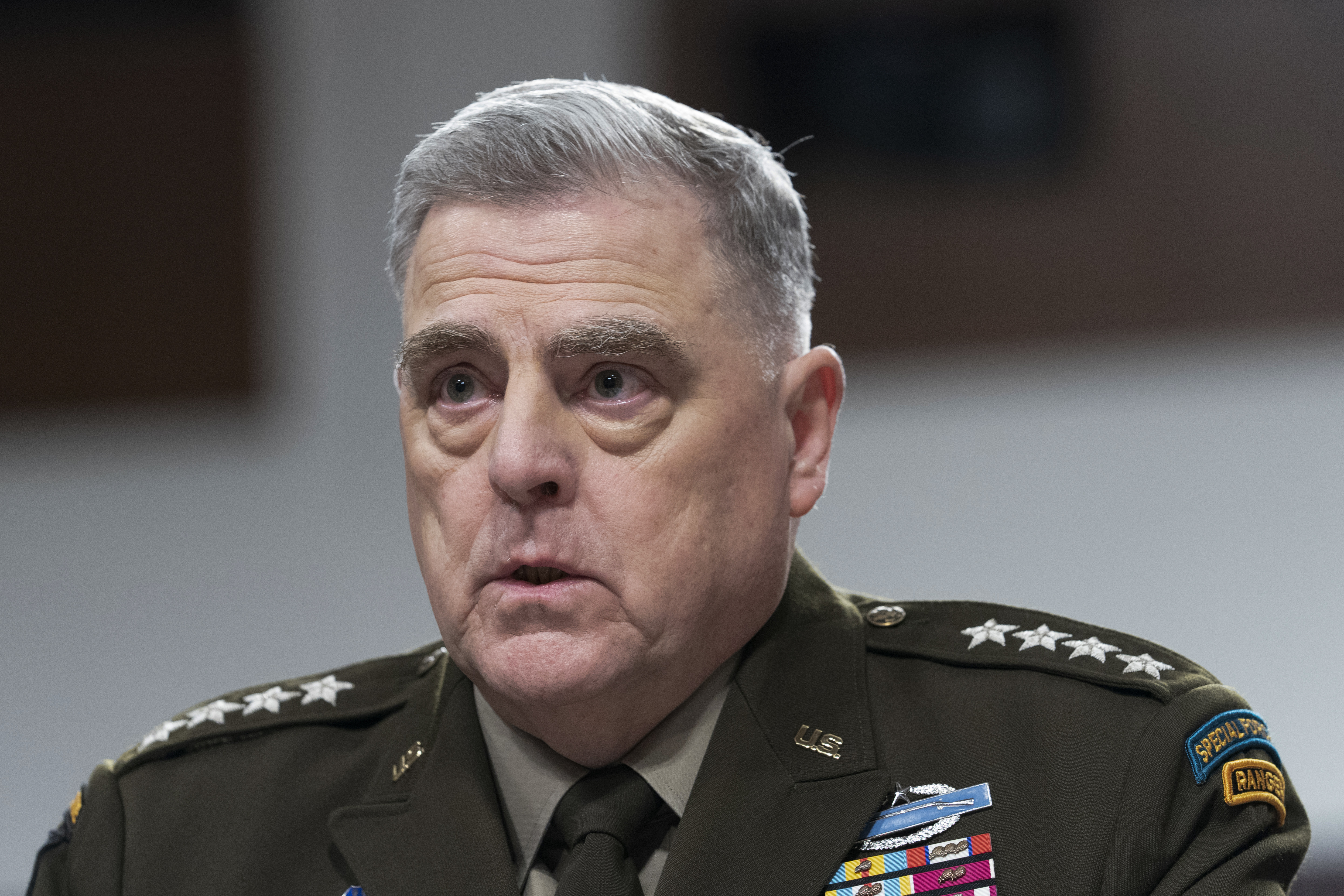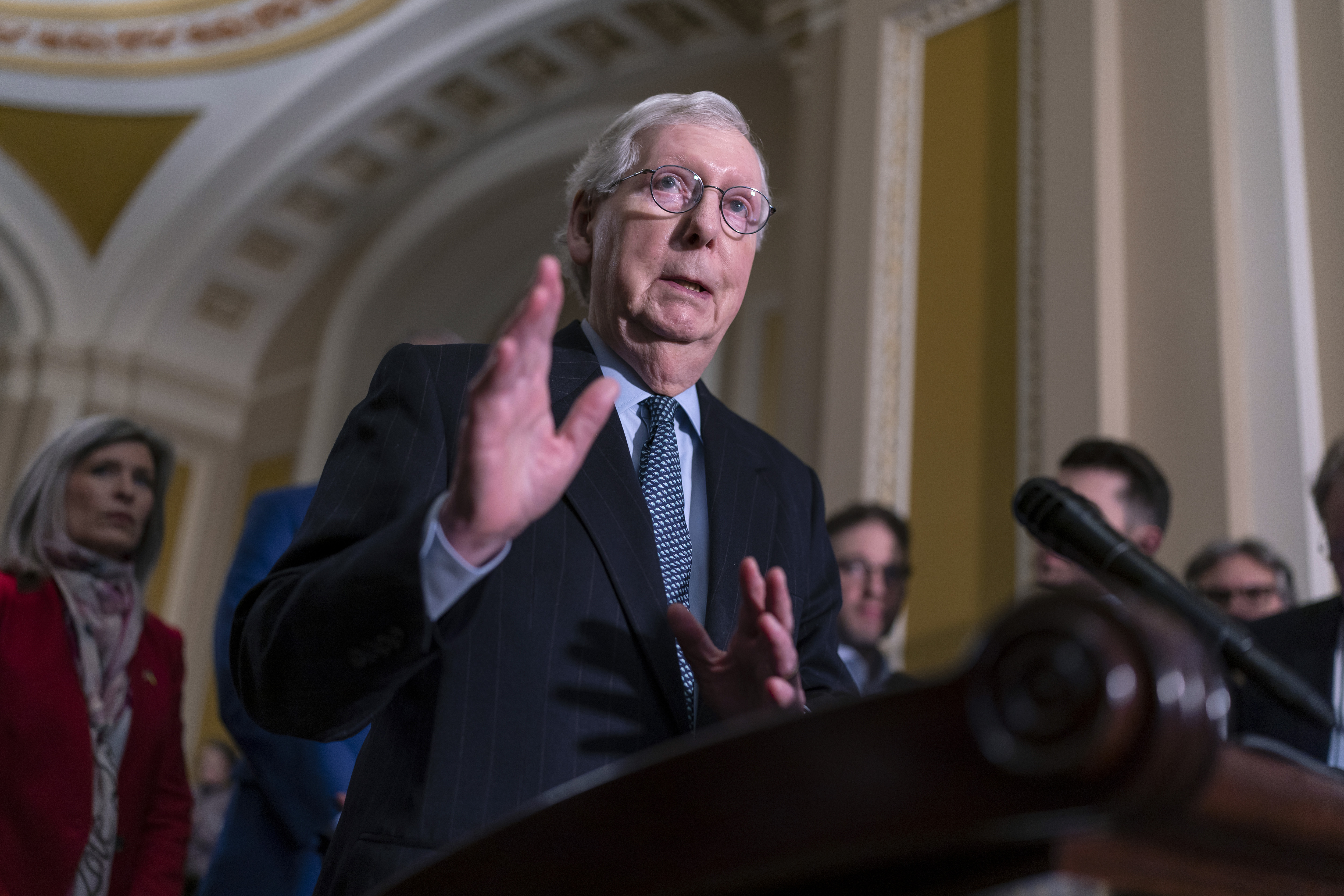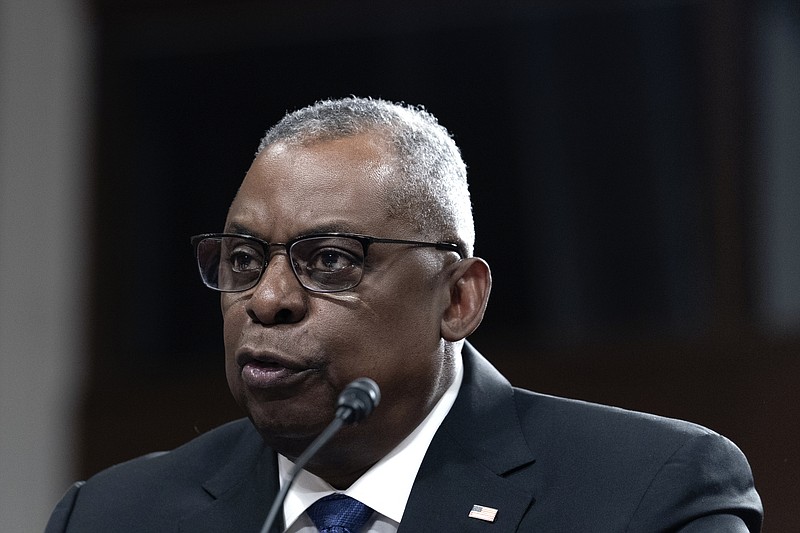WASHINGTON -- Senate Minority Leader Mitch McConnell, R-Ky., says he opposes repeal of the 2002 and 1991 authorizations of force against Iraq, arguing that that authority "bears directly on the threats we face today in Iraq and Syria from Iran-backed terrorists."
McConnell, who is home recovering from a fall earlier this month, is weighing in for the first time as the Senate is poised, as soon as today, to repeal the decades-old authority for the Iraq war. While supporters say the repeal would reinforce today's strategic partnership between Iraq and the United States, McConnell and other Republican opponents say a withdrawal of those war powers would project U.S. weakness in the Middle East and embolden Iran and other terrorist groups.
"I am opposed to Congress sunsetting any military force authorizations in the Middle East," McConnell said. "Our terrorist enemies aren't sunsetting their war against us. And when we deploy our servicemembers in harm's way, we need to supply them with all the support and legal authorities that we can."
The pushback from McConnell comes amid a growing rift in the Republican Party on the U.S. role in the Middle East, with some echoing former President Donald Trump's "America First" message to argue against military intervention abroad. Other Republicans are concerned Congress is giving too much leeway to the president in matters of war.
Almost 20 GOP senators have signaled they will vote for the repeals, likely giving Democrats the votes they need to approve the two measures.
"I think a lot of lessons have been learned over the last 20 years," said Indiana Sen. Todd Young, the lead Republican sponsor of the repeal. He said that those supporting the legislation "want to ensure that the American people can hold us accountable, rather than delegating those important authorities to an executive branch and then lamenting the unwitting wisdom of the executive branch if things don't go well."
The October 2002 votes to give President George W. Bush broad authority for the invasion were a defining moment for many members of Congress. After the initial March 2003 invasion, American ground forces quickly discovered that Bush administration's allegations of nuclear or chemical weapons programs were baseless. In the end, hundreds of thousands of Iraqis and nearly 5,000 U.S. troops died in the war.
Young noted that there is other existing authority for President Joe Biden, along with past and future presidents, to order military action. But lawmakers fear the Iraq war powers could be used for purposes Congress never intended.
Trump's administration cited the 2002 Iraq war resolution as part of its legal justification for a 2020 U.S. drone strike that killed Iranian Gen. Qassim Soleimani, but it has otherwise been rarely used.
Maine Sen. Susan Collins, a Republican who voted for the Iraq war authorization in 2002 but is now voting for repeal, said that two decades ago there was more deference to a president's authority in the case of an imminent threat. But since the Iraq war, she said, "there's more hesitation to have open-ended authorizations for the use of force, and the fact that these authorizations have been in effect for so many years diminishes the role of Congress in declaring war."
Supporters of the repeal, including Biden and his administration, have argued that it would not affect any response to Iran. Defense Secretary Lloyd Austin and Army Gen. Mark Milley, chairman of the Joint Chiefs of Staff, both said at a Senate hearing on Wednesday that American troops have the ability to protect themselves and respond to attacks, including Article 2 of the Constitution, which gives the president the authority to protect troops from attack.
 Gen. Mark Milley, chairman of the Joint Chiefs of Staff, testifies during a Senate Armed Services Committee hearing to examine the President's proposed budget request for fiscal year 2024 for the Department of Defense and the Future Years Defense Program, Tuesday, March 28, 2023, on Capitol Hill in Washington. (AP Photo/Mariam Zuhaib)
Gen. Mark Milley, chairman of the Joint Chiefs of Staff, testifies during a Senate Armed Services Committee hearing to examine the President's proposed budget request for fiscal year 2024 for the Department of Defense and the Future Years Defense Program, Tuesday, March 28, 2023, on Capitol Hill in Washington. (AP Photo/Mariam Zuhaib) FILE - Senate Republican Leader Mitch McConnell, R-Ky.,speaks during a news conference at the Capitol in Washington, Feb. 14, 2023. McConnell says he opposes repeal of the 2002 and 1991 authorizations of force against Iraq, arguing that that authority "bears directly on the threats we face today in Iraq and Syria from Iran-backed terrorists." (AP Photo/J. Scott Applewhite, File)
FILE - Senate Republican Leader Mitch McConnell, R-Ky.,speaks during a news conference at the Capitol in Washington, Feb. 14, 2023. McConnell says he opposes repeal of the 2002 and 1991 authorizations of force against Iraq, arguing that that authority "bears directly on the threats we face today in Iraq and Syria from Iran-backed terrorists." (AP Photo/J. Scott Applewhite, File)